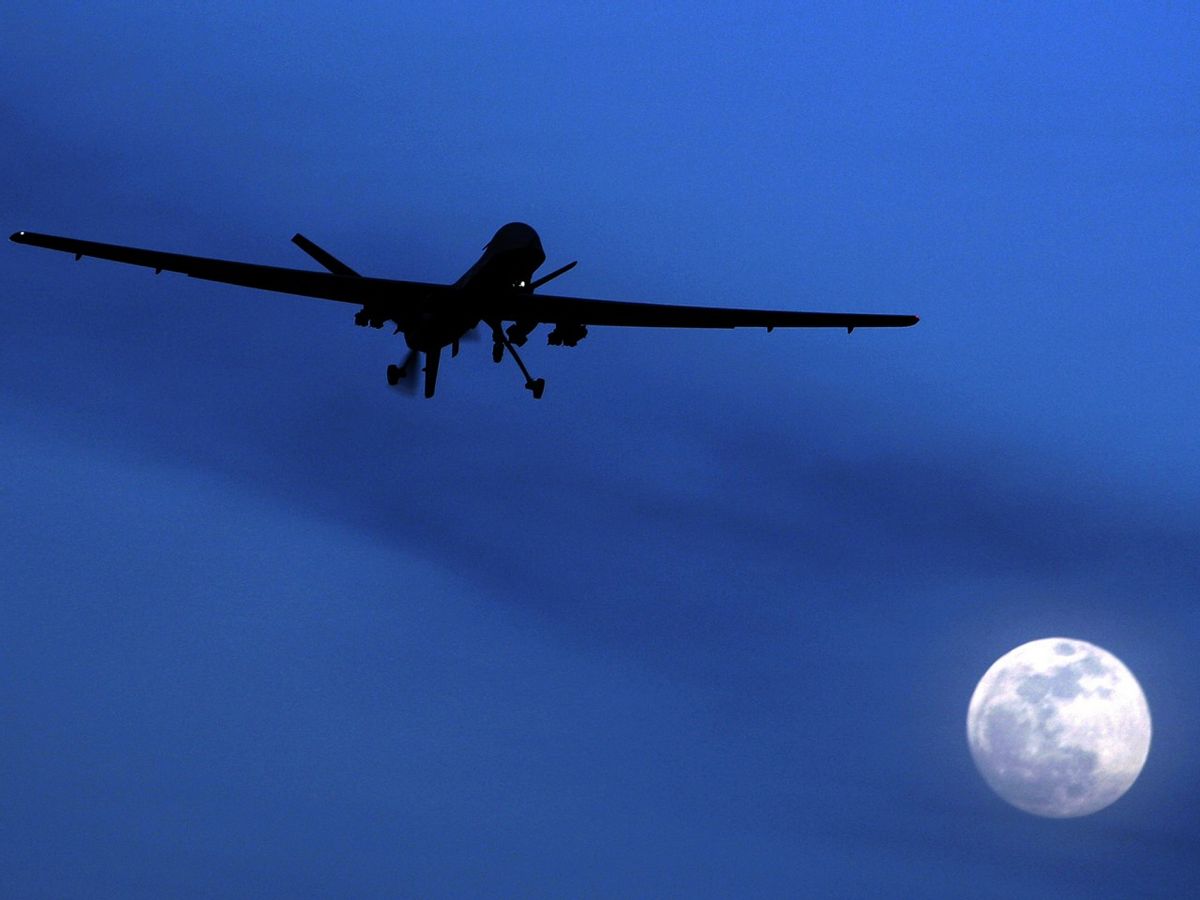With the swift proliferation of surveillance drones into the hands of domestic government bodies, law enforcement, and private corporations, efforts to regulate drone use and protect U.S. citizens' privacy have spread across the country. A bill with bipartisan support was introduced to the House last month that would require law enforcement to get a search warrant or some other kind of judicial approval for surveillance before using drones to investigate criminal wrongdoing. A Virginia city has also become the first in the U.S. to pass an (albeit symbolic) resolution against the government use of domestic drones.
For the most part, privacy advocates have expressed concerns about police and private corporations using drone technology to spy on citizens without warrants. In Texas, however, the issue of drones and privacy has taken a specific shape, protecting business interests against citizen surveillance. A new bill introduced by Texas state Rep. Lance Gooden, a Republican, would make it a misdemeanor to take photos with an unmanned aircraft. As PopSci explained:
It’s unique because it criminalizes taking any data -- photos, sound, temperature, even odor -- of private property using an unmanned aircraft without the permission of the property owner. Law enforcement officers could only use drones while executing a search warrant or if they had probable cause to believe someone is committing a felony, and firefighters can only use drones for fighting fire or to rescue a person whose life is “in imminent danger.” Texas’ border-patrolling Predator drones are exempt within 25 miles of the Mexican border.
The legislation was prompted by an incident last year when a hobbyist operating a small drone over public land in Dallas accidentally photographed a meat-packing plant illegally dumping pig blood into the Trinity river, resulting in an EPA indictment. If passed, the bill would introduce the sort of regulation that privacy advocates have been pushing for around the country -- aiming to contain warrentless government surveillance -- while outlawing hobbyists and whistleblowers who might use drones. The bill reflects a strain of corporate libertarianism that runs through contemporary U.S. politics.
A new Reason-Rupe poll exploring U.S. opinions on drone use and abuse reflected significant concerns about local law enforcement abusing the technology:
Forty percent of respondents, including 34 percent of Democrats, 36 percent of Republicans, and 47 percent of independents, said they were very worried that local police would use drones to invade their privacy; fully 60 percent said they were worried to some degree or another.
The poll also found mixed responses when it came to appropriate responses to a drone flying over one's property:
Respondents were evenly divided over this question: If a drone flew over your house and was recording you and your property without your permission, do you think should have the right to destroy it, or not? Forty-seven percent said yes, 47 percent said no, 4 percent didn't answer, and one percent said, "It depends."
Perhaps what the proposed Texas legislation prompts is a more nuanced discussion about drones and surveillance -- especially for groups who might embrace drone use to monitor corporate malfeasance but who fear warrantless government surveillance. The debate over drones should not focus on whether drone surveillance technology is good or bad, but rather recognize that the use of drone technology -- who can watch whom and how -- is what must be scrutinized.

Shares